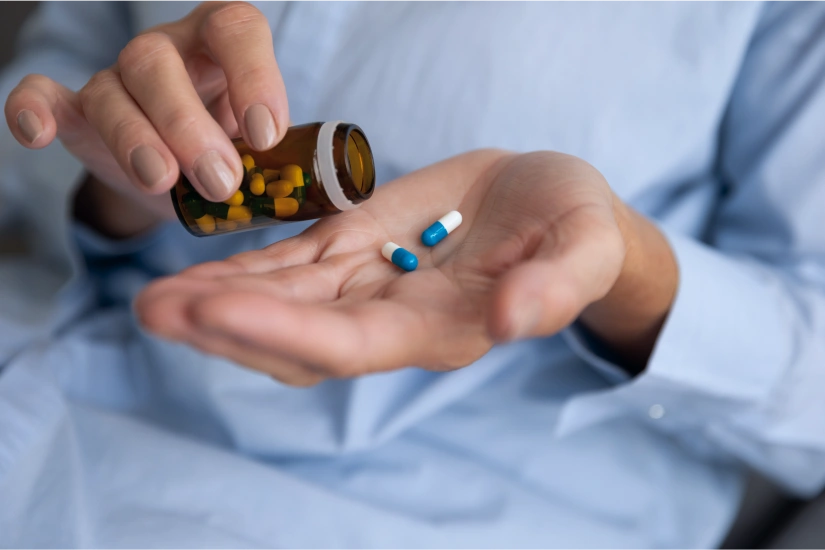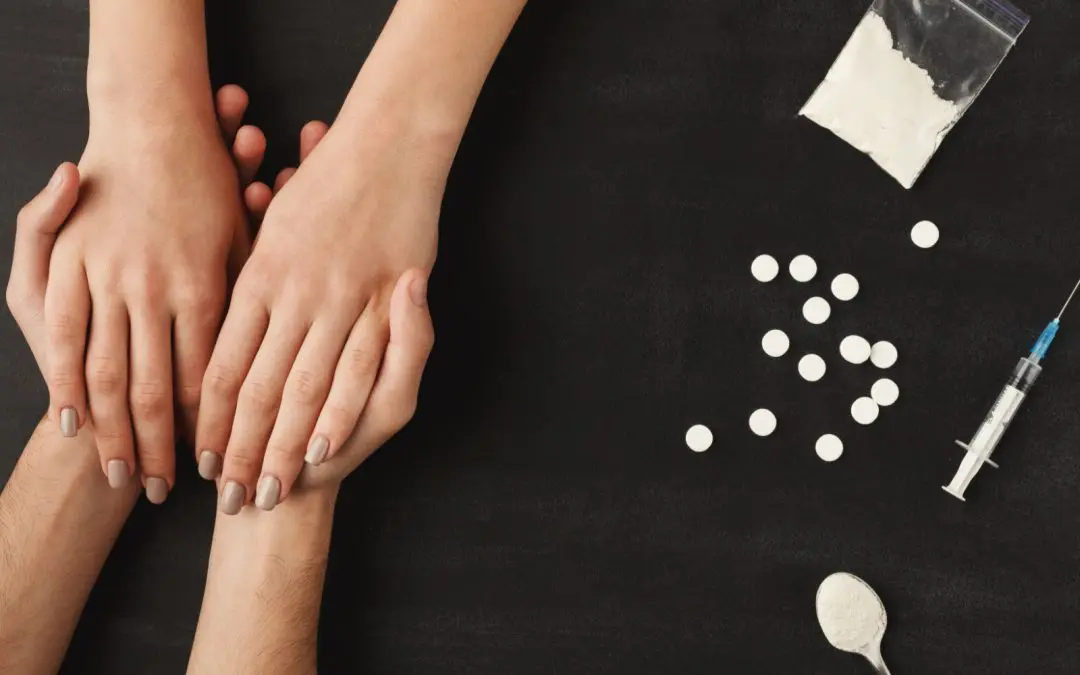24/7 Helpline:
(866) 899-111424/7 Helpline:
(866) 899-1114
Learn more about Dual Diagnosis Rehab centers in Gila Bend
Dual Diagnosis Rehab in Other Cities

Other Insurance Options

Health Net

State Farm

Regence

Sliding scale payment assistance

Access to Recovery (ATR) Voucher
Beacon

Premera

Magellan Health

Holman Group

GEHA

Aetna

EmblemHealth

Optum

Lucent

MHNNet Behavioral Health

American Behavioral

CareSource

Kaiser Permanente

Providence

UnitedHealth Group









Anasazi Foundation
Located in Mesa, Arizona, Anasazi Foundation offers mental health treatment through their outdoor be...

Scottsdale Recovery Center
Arizona's Scottsdale Recovery Center provides alcohol and drug rehab services to men and women. Thei...

Valle del Sol – 1st Avenue
Valle del Sol – 1st Avenue is a private rehab located in Phoenix, Arizona. Valle del Sol – 1st Avenu...

CPLC – Chicanos Por La Causa – Friendship Community Mental Health Center
CPLC - Chicanos Por La Causa - Friendship Community Mental Health Center, located in Phoenix, Arizon...

Center for Behavioral Health
Center for Behavioral Health is a private rehab located in Tempe, Arizona. Center for Behavioral Hea...

Banner Behavioral Health Hospital
Banner Behavioral Health Hospital in Scottsdale is a trusted facility dedicated to providing excepti...

Valley Hope of Tempe
Easily accessible from the Phoenix metro, Valley Hope’s outpatient center in Tempe, Arizona, offers ...

The Meadows
The Meadows is an alcohol and drug rehab center that provides addiction treatment services to men an...

Community Bridges – Lodestar Day Resource Center
Community Bridges - Lodestar Day Resource Center, located in Phoenix, Arizona, is a community-based ...

Resilient Health- Warehouse 1005
Resilient Health - Warehouse 1005, located in Phoenix, Arizona, offers alcohol and drug rehab treatm...

Crossroads
Crossroads is a residential and outpatient drug rehab program located in Phoenix, Arizona. They offe...

Native American Connections – Outpatient
Native American Connections - Outpatient is a behavioral health treatment facility located in Phoeni...

Canyon Vista Recovery Center
Canyon Vista Recovery Center offers alcohol and drug rehab services to individuals seeking recovery ...

Emmarie Behavioral Home Care – Wayland
Emmarie Behavioral Home Care - Wayland is a five-bed facility in Phoenix, Arizona that provides trea...

Step One – Halfway house
Step One – Halfway house is a private rehab located in Phoenix, Arizona. Step One – Halfway house sp...

Arizona’s Children Association
Arizona's Children Association is the largest statewide comprehensive child welfare and behavioral h...

Buena Vista Recovery
Located in Cave Creek, Arizona, Buena Vista Recovery provides alcohol and drug rehab services to men...

Scottsdale Providence Recovery Center
Scottsdale Providence recovery provides alcohol and drug rehab services, along with mental health tr...

Southwest Network – Saguaro
Southwest Network – Saguaro is a dual diagnosis behavioral health drug rehab facility located in Pho...

Valle Del Sol
Valle Del Sol is a community health center in Mesa, Arizona that offers addiction treatment, mental ...

2nd Chance Treatment Center Phoenix
Located in Phoenix, Arizona, 2nd Chance Treatment Center is an alcohol and drug rehab program that p...

Aurora Behavioral Health Tempe
Aurora Behavioral Health Tempe is a private rehab located in Tempe, Arizona. Aurora Behavioral Healt...

Mission Treatment Center
Mission Treatment Center is a private traditional rehab located in Scottsdale, AZ. Mission Treatment...

Resilent Health
Resilient Health is a resiliency-building company, providing services to children, adults and famili...

SEEK Arizona
SEEK Arizona is a private rehab located in Mesa, Arizona. SEEK Arizona specializes in the treatment ...

Banner Behavioral Health
Banner Behavioral Health is an alcohol and drug rehab and behavioral health care center that provide...

Thunderbird Treatment Center
Thunderbird Treatment Center is a drug and alcohol rehab in Glendale, Arizona. They provide outpatie...

Partners in Recovery
Partners in Recovery is a private rehab located in Mesa, Arizona. Partners in Recovery specializes i...

Valley Hope of Chandler
Valley Hope of Chandler offers alcohol and drug rehab services to men and women seeking recovery in ...

Southwest Behavioral Health Services – Community Resilience Center
Southwest Behavioral Health Services - Community Resilience Center is an alcohol and drug rehab and ...

Dynamic Living Counseling
Dynamic Living Counseling offers counseling, classes and treatment services at affordable prices thr...

Southwest Behavioral Health Services – 7th Avenue Outpatient
Southwest Behavioral Health Services - 7th Avenue Outpatient is a substance abuse treatment center i...

A Better Today Recovery Services
A Better Today Recovery Resources is the premier inpatient and outpatient recovery center located in...

Alcohol Recovery Solutions
Alcohol Recovery Solutions provides alcohol and drug rehab treatment to men and women seeking recove...

Southwest Center
Southwest Center is a private rehab located in Phoenix, Arizona. Southwest Center specializes in the...

ACT Counseling and Education
ACT Counseling and Education is a private counseling clinic located in Scottsdale, AZ. ACT Counselin...

Crossroads – West Campus for Men
The Crossroads West Campus for Men is a drug and alcohol rehab center located in Phoenix, Arizona. T...

Southwest Behavioral and Health Services – Mesa Outpatient
Southwest Behavioral and Health Services – Mesa Outpatient is a private rehab located in Mesa, Arizo...

SpringBoard Recovery
Springboard Recovery offers alcohol and drug rehab services to men and women in Scottsdale, Arizona....

NATIVE HEALTH Central
NATIVE HEALTH Central provides mental health care, behavioral healthcare, and alcohol and drug rehab...

Stonewall Institute
Stonewall Institute is a private drug and alcohol addiction treatment center in Phoenix, Arizona, so...

Gallus Detox Center
Gallus Detox Center offers a medical detoxification program for individuals with chemical dependency...

Empact Suicide Prevention Center – South Madison Drive
Empact Suicide Prevention Center - South Madison Drive offers outpatient services for individuals wi...

Arizona Women’s Recovery Center
Established in 1960, Arizona Women's Recovery Center (formerly NCADD) is a non-profit rehab for wome...

Community Medical Services
Community Medical Services is a leading drug addiction treatment center and methadone clinic in Mesa...

New Hope Behavioral Health Center
New Hope Behavioral Health Center is an outpatient substance abuse behavioral healthcare clinic loca...

Crossroads – Red Mountain Campus for Men
The Crossroads – Red Mountain Campus for Men opened its doors in 2017 in Mesa. This addiction treatm...

FUNE Consulting Services
FUNE Consulting Services, located in Phoenix, Arizona, provides alcohol and drug rehab services to m...

Arizona Center for Change
Arizona Center for Change, located in Phoenix, Arizona, provides addiction treatment services to ind...

Az Council On Compulsive
Arizona Council On Compulsive Gambling, located in Phoenix, Arizona, provides alcohol and drug rehab...

TLC Treatment Center
TLC Treatment Center is a drug and alcohol rehab located in Mesa, AZ. They provide outpatient addict...

Partners in Recovery – Metro Center
Partners in Recovery – Metro Center specializes in treating dual diagnosis substance abuse condition...

Community Bridges
Community Bridges is a private rehab located in Avondale, Arizona. Community Bridges specializes in ...

Marc Community Resources – Outpatient
Marc Community Resources - Outpatient offers behavioral health care and mental health treatment to i...

Addiction Hypnotherapy
Addiction Hypnotherapy is a drug and alcohol rehab in Glendale, Arizona. They provide outpatient add...

Craig Shells New Solution
Craig Shells New Solution is a non-profit rehab located in Phoenix, AZ. Craig Shells New Solution sp...

A New Leaf – Dorothy B. Mitchell Counseling Center
A New Leaf – Dorothy B. Mitchell Counseling Center is a private rehab located in Mesa, Arizona. A Ne...

Terros
Terros, located in Glendale, Arizona, offers drug rehab services and mental health treatment to indi...

Healthy Futures
Healthy Futures is a private rehab located in Scottsdale, Arizona. Healthy Futures specializes in th...

Southwest Behavioral Health – Broadway Outpatient
Southwest Behavioral Health - Broadway Outpatient is an alcohol and drug rehab and behavioral health...

Southwest Behavioral Health Services – Buckeye Outpatient
Southwest Behavioral Health Services – Buckeye Outpatient is a rehab center that caters to its commu...

Lifewell Behavioral Wellness – Power
Lifewell Behavioral Wellness - Power, located in Mesa, Arizona, provides drug rehab services and men...

Mountain Valley Counseling
Mountain Valley Counseling is a private rehab located in Mesa, Arizona. Mountain Valley Counseling s...

Inner Work Counseling
Inner Work Counseling is a private rehab located in Tempe, Arizona. Inner Work Counseling specialize...

Oasis Behavioral Health Hospital
Oasis Behavioral Health Hospital (OBH) is a co-occurring mental health and drug rehab center based i...

Aurora Behavioral Health System
Aurora Behavioral Health System is a mental health and substance abuse treatment hospital in Glendal...

Youth ETC
Youth ETC provides alcohol and drug rehab services to men and women seeking recovery in the Phoenix,...

Community Bridges – East Valley Addiction Recovery Center (EVARC)
Community Bridges–East Valley Addiction Recovery Center (EVARC) is a 12 step-focused drug and alcoho...

Teen Challenge of Arizona – Greater Phoenix Men’s Center
Teen Challenge of Arizona–Greater Phoenix Men’s Center is a 12 step focused, faith based drug and al...

Youth Advocate Programs
Youth Advocate Programs is a non-profit rehab located in Glendale, AZ. Youth Advocate Programs is co...

Rio Salado – Behavioral Health System
Rio Salado – Behavioral Health System is a private rehab located in Phoenix, Arizona. Rio Salado – B...

Community Medical Services – Alpha
Community Medical Services – Alpha is a private rehab located in Phoenix, Arizona. Community Medical...

Saint Luke’s Behavioral Health Center – East Valley Outpatient
Saint Luke's Behavioral Health - East Valley Outpatient, located in Chandler, Arizona, is an alcohol...

BAART Programs
BAART Programs in Chandler, AZ, is a recognized addiction treatment center. They are dedicated to pr...

Valle del Sol – 7th Street
Valle del Sol - 7th Street is a behavioral health care and mental health treatment program in Phoeni...

Saint Luke’s Behavioral Health Center
Saint Luke's Behavioral Health Center, located in Phoenix, Arizona, provides alcohol and drug rehab ...

Pinnacle Peak Recovery
Pinnacle Peak Recovery is a private rehab located in Scottsdale, Arizona. Pinnacle Peak Recovery spe...

Lifewell Behavioral Wellness – Windsor
Lifewell Behavioral Wellness–Windsor offers mental health care and addiction recovery treatment for ...

Promises Scottsdale
Promises Scottsdale offers evidence-based treatment for addiction and co-occurring disorders in a re...

Terros
Terros is an alcohol and drug rehab center in Phoenix, Arizona that provides a wide variety of servi...

Ebony House – Elba House
Ebony House - Elba House is an alcohol and drug rehab program that offers addiction treatment to wom...

Desert Edge Mentoring Services
Desert Edge Mentoring Services, located in Phoenix, Arizona, provides alcohol and drug rehab service...

Dynamic Living Counseling
Dynamic Living Counseling, located in Phoenix, Arizona, offers alcohol and drug rehab services and b...

Touchstone Behavioral Health
Touchstone Behavioral Health is a private rehab located in Phoenix, Arizona. Touchstone Behavioral H...

Valle Del Sol
Valle Del Sol is a Certified Community Behavioral Health Center (CCBHC) that specializes in treating...

Community Bridges – Center for Excellence
Community Bridges - Center for Excellence, located in Phoenix, Arizona, is an alcohol and drug rehab...

East Valley ASAP
East Valley ASAP is a reputable substance abuse treatment center in Mesa AZ for adolescents ages 12-...

Lifewell Behavioral Wellness – University
Lifewell Behavioral Wellness - University, located in Mesa, Arizona, provides drug rehab services an...

Arizona’s Children Association – Thomas Road
Arizona’s Children Association - Thomas Road, located in Phoenix, Arizona, offers dual diagnosis tre...

Sovereign Health
Sovereign Health is a women’s alcohol and drug rehab center in Chandler, Arizona that provides a wid...

Gentle Path at The Meadows
Gentle Path at The Meadows, located in Wickenburg, Arizona, is an alcohol and drug rehab, dual diagn...

Dynamic Living Counseling
Dynamic Living Counseling offers counseling, classes and treatment services at affordable prices thr...

CPLC – Chicanos Por La Causa – Centro de la Familia
Chicanos Por La Causa (CPLC) is a community focused substance abuse and behavioral health treatment ...

CPLC Corazon
CPLC Corazon is a client-centered, multicultural center with bilingual staff. They provide substance...

Empact Suicide Prevention Center – South 52nd Street
Empact Suicide Prevention Center - South 52nd Street offers outpatient services for children and adu...

Southwest Behavioral Health – Erickson Outpatient
Southwest Behavioral Health - Erickson Outpatient is a behavioral health care and mental health care...

Positive Change Institute
Positive Change Institute is a private rehab located in Mesa, Arizona. Positive Change Institute spe...

Devereux Advanced Behavioral Health – East Sweetwater Avenue
Devereux Advanced Behavioral Health - East Sweetwater Avenue provides an array of services for child...

Lifewell Behavioral Wellness – South Mountain
Lifewell Behavioral Wellness - South Mountain offers alcohol and drug rehab services and mental heal...

Empact Suicide Prevention Center
Empact Suicide Prevention Center - 2474 E. Hunt Highway offers outpatient services for children and ...

Arizona Women’s Recovery Center- Weldon House
The Pheonix, Arizona Women’s Recovery Center (AWRC) is a co-occurring drug and alcohol addiction reh...

Illuminate Recovery
Illuminate Recovery is a drug and alcohol addiction treatment center with locations throughout Scott...

Intensive Treatment Systems – West Clinic Access Point
The Intensive Treatment Systems (ITS) West Clinic Access Point facility stands as a CARF-accredited ...

Desert Cove Recovery
Desert Cove Recovery provides inpatient and outpatient services for individuals with substance addic...

Archways
Archways is a sober living home in Mesa, Arizona that provides a safe space to live while you underg...

Willow House at The Meadows
Willow House at The Meadows is a behavioral healthcare and mental health treatment center in Wickenb...

Rio Retreat Center at The Meadows
Rio Retreat Center at The Meadows is an alcohol and drug rehab center in Wickenburg, Arizona that of...

Fountain Hills Recovery
Fountain Hills Recovery is a drug and alcohol rehab in Fountain Hills, Arizona. They provide luxury ...

Banner – University Medicine Behavioral Health
Banner - University Medicine Behavioral Health, located in Phoenix, Arizona, offers behavioral healt...

The Meadows – Claudia Black Young Adult Center
The Meadows Claudia Black Young Adult Center, located in Wickenburg, Arizona, is an alcohol and drug...

Southwest Behavioral Health – Metro Outpatient
Southwest Behavioral Health - Metro Outpatient provides behavioral health care and mental health tre...

The Meadows Ranch
The Meadows Ranch, located in Wickenburg, Arizona, offers treatment for women struggling with an eat...

The Meadows Outpatient Center
The Meadows Outpatient Center, located in Scottsdale, Arizona, is an alcohol and drug rehab center. ...

SOBA Mesa
SOBA Recovery Center is an innovative rehab center located in Mesa, Arizona that provides cost-effec...

Arizona Addiction Recovery Center – AARC
Arizona Addiction Recovery Center - AARC is an alcohol and substance abuse treatment for young adult...

Buena Vista Detox and Recovery Center
Buena Vista Detox and Recovery Center is an alcohol and drug rehab facility in Cave Creek, Arizona. ...

Soberman’s Estate
Soberman’s Estate, located in Cave Creek, Arizona, is an alcohol and drug rehab center that provides...

Lifeline Southwest
Lifeline Southwest is a private rehab located in Avondale, Arizona. Lifeline Southwest specializes i...

Life Continues Recovery
Life Continues Recovery provides a variety of remote recovery support services, including; Certified...

Arizona Behavioral Counseling and Education
Arizona Behavioral Counseling and Education is a drug and alcohol rehab and counseling center in Gle...

Crossroads – Midtown Campus for Men
Crossroads - Midtown Campus for Men, located in Phoenix, Arizona, is an alcohol and drug rehab cente...

Terros Health Recovery Center
Terros Health Recovery Center is a behavioral health and drug rehab center in Phoenix, Arizona. They...

Terros – East Mcdowell
Nestled in Phoenix, Arizona, Terros Health's East McDowell Health Center is a reputable substance ab...

Crossroads – Flower Campus for Men
Crossroads - Flower Campus is an alcohol and drug rehab program in Phoenix, Arizona that offers addi...

TLC Treatment Center
TLC offers a range of services that support recovery. Among these are 850 halfway house beds, a Stat...

Crossroads – Arcadia
Crossroads - Arcadia, located in Phoenix, Arizona, provides addiction treatment to men seeking recov...

Behavioral Systems Southwest
Behavioral Systems Southwest, located in Phoenix, Arizona, provides counseling and rehabilitation se...

Maricopa Medical Center – Behavioral Health
Maricopa Medical Center – Behavioral Health is a public rehab located in Phoenix, Arizona. Maricopa ...

Rising Phoenix Wellness Services
Rising Phoenix Wellness Services is a private mental health and substance abuse treatment facility i...

Cornerstone Healing Center
Cornerstone Healing Center is a private rehab center treating drug & alcohol addiction. A holistic d...

Pathfinders Recovery Center
Pathfinders Recovery Center is a traditional rehab located in Scottsdale, AZ. Pathfinders Recovery C...

Crossroads – East Campus
Crossroads - East Campus is an alcohol and drug rehab center in Phoenix, Arizona that provides addic...

Center for Behavioral Health
Center for Behavioral Health provides mental health treatment, behavioral health treatment, and addi...

Transitions Counseling and Consulting Northwest
Transitions Counseling and Consulting Northwest is a drug and alcohol rehab and counseling center in...

The Coleman Institute
The Coleman Institute is a private substance abuse treatment facility in Phoenix, Arizona. They spec...

Black Family and Child Services
Black Family and Child Services (BFCS) is a private nonprofit community center offering behavioral h...

Childhelp Childrens Center
Childhelp Children’s Center, located in Phoenix, Arizona, provides prevention, intervention, and tre...

TASC – Treatment Assessment Screening Center – Canyon Hwy.
TASC - Treatment Assessment Screening Center - Canyon Highway is a drug and alcohol addiction recove...

The Salvation Army
The Salvation Army is a nonprofit Christian substance abuse treatment program in Phoenix, Arizona. T...

Core Recovery
Core Recovery is a private mental health and substance abuse treatment facility in Phoenix, Arizona....

Intensive Treatment Systems – San Tan Clinic
Intensive Treatment Systems – San Tan Clinic is a private rehab located in Queen Creek, Arizona. Int...

The Pathway Program
The Pathway Program is a family-owned specialized in the substance abuse treatment for teens and you...

Intensive Treatment Systems – Mesa Clinic
Intensive Treatment Systems – Mesa Clinic is a private rehab located in Mesa, Arizona. Intensive Tre...

Terros – Recovery Clinic
Terros - Recovery Clinic is a nonprofit medical facility offering mental health and substance abuse ...

Valle del Sol
Valle del Sol provides behavioral health care, primary care services, and alcohol and drug rehab ser...

Addiction Resources
Addiction Resources is a private opioid addiction treatment clinic in Phoenix, Arizona. They have se...

Intensive Treatment Systems – Main Clinic
Intensive Treatment Services - Main Clinic is a private substance abuse and behavioral health treatm...

Purpose Healing Center
Located in Scottsdale, Arizona, Purpose Healing Center is an alcohol and drug rehab center that prov...

Vogue Recovery Center
Vogue Recovery Center is a drug and alcohol rehab located in Phoenix, Arizona. They provide comprehe...

Right On Programs
Right On Programs is a private rehab located in Glendale, California. Right On Programs specializes ...

Glendale Adventist Behavioral Health Services
Glendale Adventist Medical Center (GAMC) is a 515-bed hospital built on the Seventh-day Adventist fa...

Verdugo Hills Hospital – Outpatient Services
Verdugo Hills Hospital – Outpatient Services is a private rehab located in Glendale, California. Ver...

Western Pacific Rehab
Western Pacific Rehab is a private rehab located in Glendale, California. Western Pacific Rehab spec...

California Care
California Care is a private rehab located in Glendale, California. California Care specializes in t...

Jc Treatment Center
At JC Treatment, our team of highly experienced treatment specialists employ evidence-based drug and...

The Human Service Center – Knolls Center for Change
Located in Peoria, Indiana, The Human Service Center- Knolls Center for Change provides alcohol and ...

The Human Service Center – Medication Assisted Services
The Human Service Center - Medication Assisted Services offers the Outpatient Methadone Program and ...

The Human Service Center – New Leaf Lodge
The Human Service Center - New Leaf Lodge is a residential treatment program that provides substance...

The Human Service Center – Transitions
The Human Service Center - Transitions is an outpatient treatment program that provides substance ab...

Countermeasures
Countermeasures is a counseling clinic that provides substance abuse treatment, drug abuse treatment...

Christian Psychological Associates
Christian Psychological Associates is a private rehab located in Peoria, Illinois. Christian Psychol...

VA Illiana Health Care System – Bob Michel Community Based Outpatient Clinic
Bob Michel Community Based Outpatient Clinic strives to be a patient-centered integrated health care...

Childrens Home Association – Behavior Health Services
Childrens Home Association – Behavior Health Services is a private rehab located in Peoria, Illinois...

The Human Service Center – Community Crisis Center
The Human Service Center–Community Crisis Center, in Peoria, Illinois, is a 12 step focused drug and...

Richardson Counseling Center
Richardson Counseling Center is a private rehab located in Peoria, Illinois. Richardson Counseling C...

Sheppard Pratt Integrated Behavioral Health at GBMC – Hunt Manor
Sheppard Pratt Integrated Behavioral Health at GBMC – Hunt Manor is a private rehab located in Phoen...

Ayre Counseling
Ayre Counseling is a private rehab located in Morristown, New Jersey. Ayre Counseling specializes in...

Market Street Mission – Life Change Recovery
Market Street Mission - Life Change Recovery is a counseling clinic located in Morristown, NJ. Marke...

VA New Jersey Health Care System – Morristown Outpatient Clinic
Morristown VA Outpatient Clinic provides Mental Health Services in an outpatient setting. Morristown...

Phoenix Counseling Center
Phoenix Counseling Center is a private rehab located in Phoenix, Oregon. Phoenix Counseling Center s...

Helen Ross McNabb Center – Hamblen County
The Helen Ross McNabb Center of Hamblen County is located in Morristown, Tennessee. They provide alc...

























































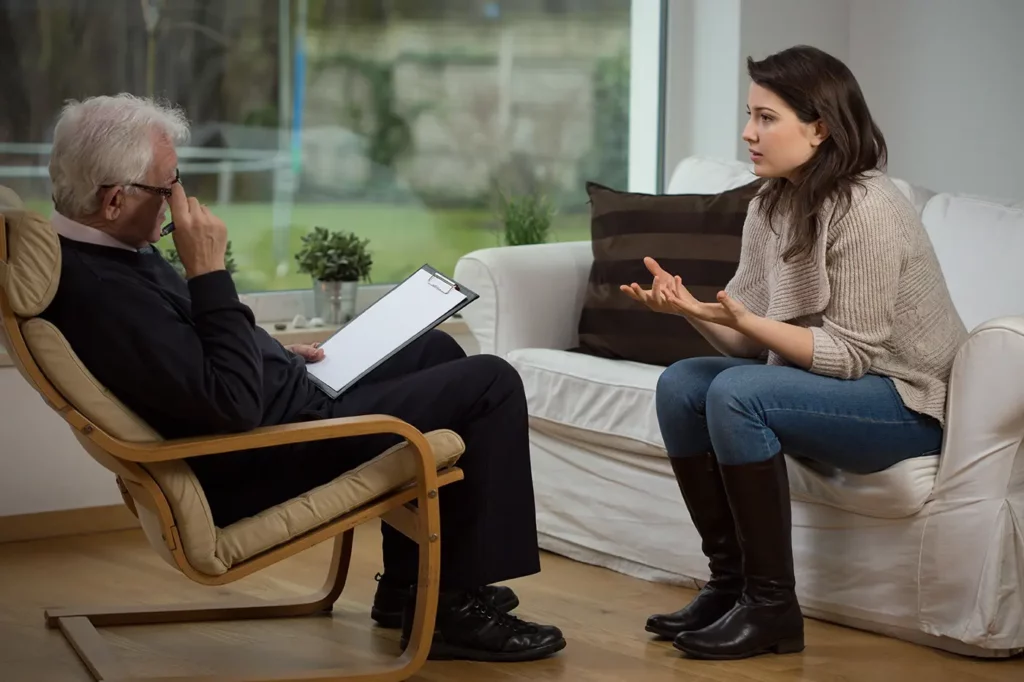

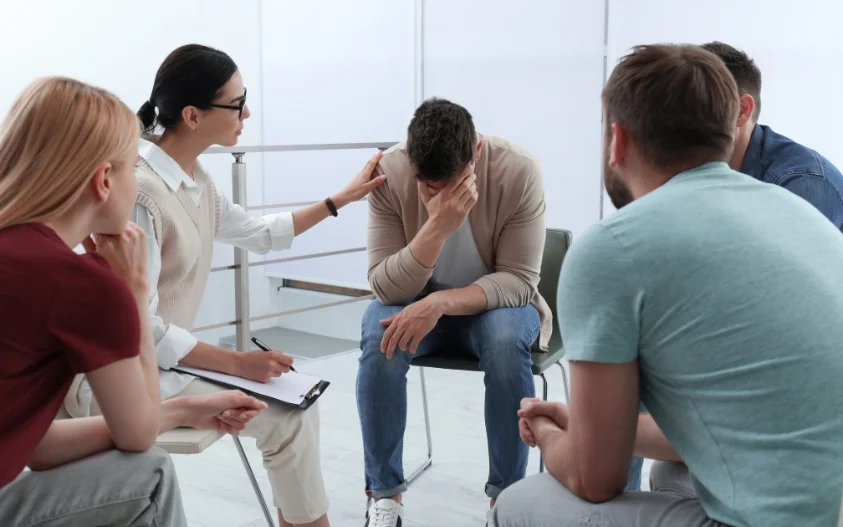





















































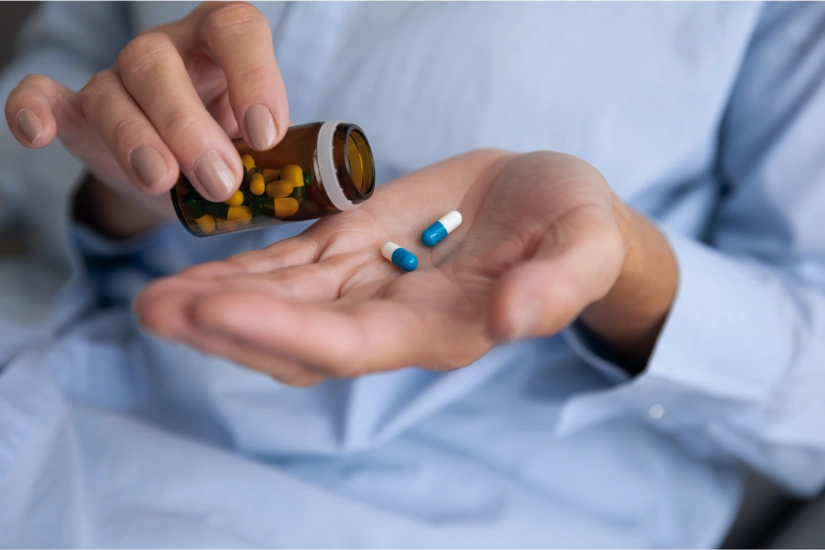














































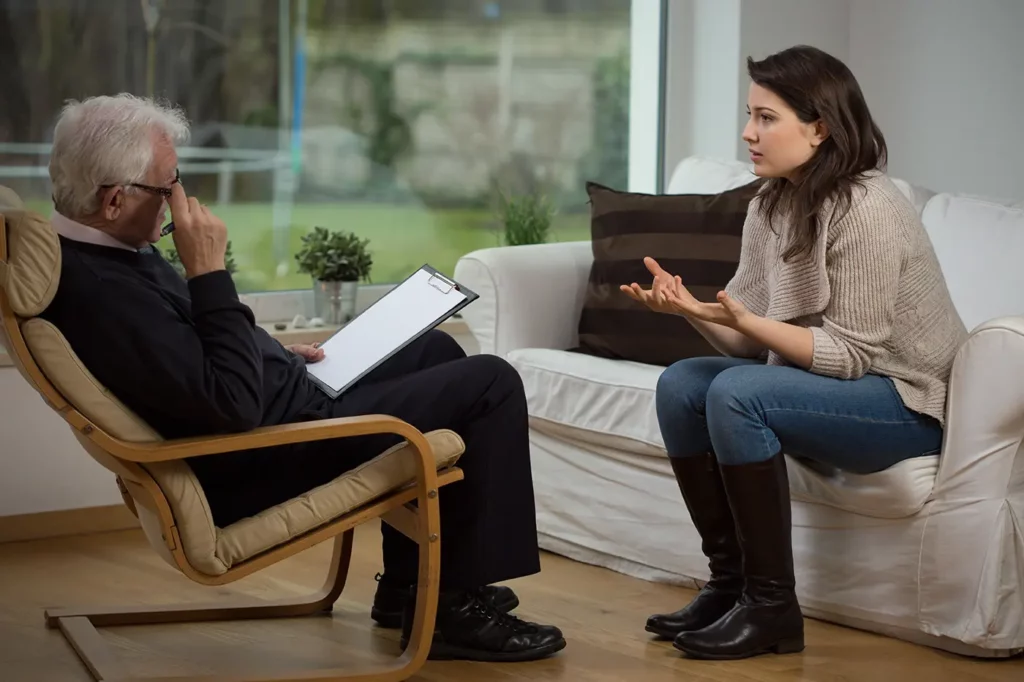



Lifewell Behavioral Wellness – Oak
Lifewell Behavioral Wellness - Oak is an outpatient treatment facility that provides behavioral heal...

Center for Balanced Living
Center for Balanced Living is a private rehab located in Phoenix, Arizona. Center for Balanced Livin...

Methadone Support
Methadone Support is a private rehab located in Scottsdale, Arizona. Methadone Support specializes i...

Biocare Therapy Wellness Center
Biocare Therapy Wellness Center, located in Phoenix, Arizona, offers alcohol and drug rehab services...

Arizona Consulting and Counseling Services
Arizona Consulting and Counseling Services provides addiction treatment, trauma treatment, and menta...

Impact Rehabilitation Services
Impact Rehabilitation Services, located in Phoenix, Arizona, provides alcohol and drug rehab service...

AAG Serenity Services
AAG Serenity Services is a private rehab located in Surprise, Arizona. AAG Serenity Services special...

Behavioral Health Center – Phoenix
Behavioral Health Center – Phoenix is a private rehab located in Phoenix, Arizona. Behavioral Health...

Terros Health
Terros Health is a private rehab located in Phoenix, Arizona. Terros Health specializes in the treat...

Rosewood
Rosewood Elliot Road for Eating Disorders offers treatment for anorexia, bulimia, binge eating disor...

Alano Club
Alano Club is a meeting place in Mesa, Arizona for individuals who want to participate in 12-Step gr...

You’re Not Alone
You’re Not Alone is a private rehab located in Tempe, Arizona. You’re Not Alone specializes in the t...

Community Bridges – ASPIRE
Community Bridges – ASPIRE is a private rehab located in Mesa, Arizona. Community Bridges – ASPIRE s...

Sos Fellowship
Sos Fellowship is a private rehab located in Phoenix, Arizona. Sos Fellowship specializes in the tre...

Central Counseling and Education
Central Counseling and Education offers alcohol and drug rehab treatment to men and women seeking re...

Neuro Rehabilitation Consultants
Neuro Rehabilitation Consultants is a private rehab located in Scottsdale, Arizona. Neuro Rehabilita...

Institute for Recovery and Rehabilitation
Institute for Recovery and Rehabilitation offers alcohol and drug rehab services to men and women se...

New Horizons Counseling Service
New Horizons Counseling Service, located in Glendale, Arizona, provides mental health treatment, beh...

Scottsdale Psychiatric Services
Scottsdale Psychiatric Services is a private rehab located in Scottsdale, Arizona. Scottsdale Psychi...

House of Miracles
House of Miracles is an alcohol and drug rehab center in Phoenix, Arizona that offers addiction trea...

Catalina Behaviorial Health Services
Catalina Behaviorial Health Services is a private rehab located in Mesa, Arizona. Catalina Behaviori...

New Day Recovery Center
New Day Recovery Center is a private rehab located in Phoenix, Arizona. New Day Recovery Center spec...

Center for Hope
Center for Hope is a private rehab located in Mesa, Arizona. Center for Hope specializes in the trea...

I want To Live Again
I want To Live Again is a private rehab located in Phoenix, Arizona. I want To Live Again specialize...

Arizona Counseling Resources
Arizona Counseling Resources, located in Peoria, Arizona, provides alcohol and drug rehab services, ...

Phoenix Shanti Group
Phoenix Shanti Group is a private rehab located in Phoenix, Arizona. Phoenix Shanti Group specialize...

SkyHouse Recovery for Women
SkyHouse Recovery for Women is a private rehab located in Scottsdale, Arizona. SkyHouse Recovery for...

New Hope of Arizona
New Hope of Arizona, located in Phoenix, Arizona, is a mental and behavioral health care center. New...

Potters House
The Potter’s House is an alcohol and drug rehab center that provides addiction treatment services to...

Advanced Counseling Center
Advanced Counseling Center is a private rehab located in Tempe, Arizona. Advanced Counseling Center ...

Backyard Group
Backyard Group is a 12-Step meeting in Phoenix, Arizona that is open to individuals from all walks o...

Southwest Behavioral Health
Southwest Behavioral Health is a private rehab located in Scottsdale, Arizona. Southwest Behavioral ...

New Arizona Family
New Arizona Family is a private rehab located in Tempe, Arizona. New Arizona Family specializes in t...

Arizona Addiction Treatment
Arizona Addiction Treatment is an alcohol and drug rehab center in Mesa, Arizona that provides addic...

Alcohol Drug Rehab Centers
Alcohol Drug Rehab Centers, located in Phoenix, Arizona, offers addiction treatment to men and women...

Native American Connections
Native American Connections, located in Phoenix, Arizona, offers traditional healing ceremonies in c...

Southwest Behavioral and Health Services – Guadalupe
Southwest Behavioral and Health Services – Guadalupe is a private rehab located in Mesa, Arizona. So...

Maricopa Medical Center – Behavioral Health
Maricopa Medical Center - Behavioral Health, located in Phoenix, Arizona, offers alcohol and drug re...

Deer Valley Counseling
Deer Valley Counseling is a private rehab located in Scottsdale, Arizona. Deer Valley Counseling spe...

Valle Del Sol
Valle Del Sol is a private rehab located in Tempe, Arizona. Valle Del Sol specializes in the treatme...

Scottsdale Treatment Institute
Scottsdale Treatment Institute is a private rehab located in Scottsdale, Arizona. Scottsdale Treatme...

TASC – Treatment Assessment Screening Center
Treatment Assessment Screening Center (TASC) offer mental health and substance abuse services for in...

AA – Alcoholics Anonymous – East Broadway Road
AA – Alcoholics Anonymous – East Broadway Road is a drug and alcohol support group in Mesa, Arizona....

Southwest Behavioral Health – South 7th Street
Southwest Behavioral & Health Services, through its 7th Avenue outpatient/opioid treatment program i...

Lifewell Behavioral Wellness – Pinchot Gardens
Lifewell Behavioral Wellness -- Pinchot Apartments is an 18 unit HUD housing unit in Phoenix, Arizon...

Alcohol Drug Abuse Prevention and Treatment
Alcohol Drug Abuse Prevention and Treatment is an alcohol and drug rehab center that provides addict...

The Solution
The Solution is a non-profit rehab located in Phoenix, AZ. The Solution specializes in the treatment...

Arizona Mentor – Meadowbrook
Arizona Mentor - Meadowbrook, located in Phoenix, Arizona, offers behavioral health care for individ...

Terros – Olive Avenue Counseling
Terros – Olive Avenue Counseling is an addiction treatment center that helps individuals get their l...

Professional Psychology Associates
Professional Psychology Associates offers professional mental health and behavioral health counselin...

Partners in Recovery
Partners in Recovery, located in Wickenburg, Arizona, provides mental health, dual diagnosis, behavi...

ABC Wellness Center – Affiliated Therapy Center
ABC Wellness Center – Affiliated Therapy Center is a private rehab located in Scottsdale, Arizona. A...

Intensive Treatment Systems – North Clinic
Intensive Treatment Systems - North Clinic is an alcohol and drug rehab center in Phoenix, Arizona. ...

Southwest Network – West Osborn Road
Southwest Network - West Osborn Road, located in Phoenix, Arizona, provides mental health treatment ...

Arizona Mentor – Aztec
Arizona Mentor - Aztec, located in Phoenix, Arizona, offers alcohol and drug rehab services to indiv...

Sunbridge Foothills Care and Rehabilitation
Sunbridge Foothills Care and Rehabilitation is a private rehab located in Phoenix, Arizona. Sunbridg...

Scottsdale Addiction Treatment and Counseling
Scottsdale Addiction Treatment and Counseling offers outpatient treatment for individuals with alcoh...

Smart Recovery
SMART Recovery is a non-12-Step recovery program in Phoenix, Arizona that is led by peers. Individua...

Rehabilitation Services Administration – Independent Living
Rehabilitation Services Administration - Independent Living is a home environment in Phoenix, Arizon...

Transitional Living Communities
Transitional Living Communities is a peer-run drug and alcohol rehab center in Mesa, Arizona. The 85...

Arizona Mentor – Cactus
Arizona Mentor – Cactus is a private rehab located in Phoenix, Arizona. Arizona Mentor – Cactus spec...

Sage Counseling
Sage Counseling is a drug and alcohol rehab center located in Mesa, AZ. They provide outpatient subs...

Oficina Intergrupal Hispana de Al – Alon
Oficina Intergrupal Hispana de Al – Alon is a non-profit rehab located in Phoenix, Arizona. Oficina ...

1st Step
1st Step, located in Mesa, Arizona, offers long-term residential alcohol and drug rehab services. Wh...

Alcoholism and Drug Detox Help
Alcoholism and Drug Detox Help is a private rehab located in Mesa, Arizona. Alcoholism and Drug Deto...

A New Leaf – West Valley Community Behavioral Health Services
A New Leaf provides mental health treatment, health and wellness services, educational classes, fina...

Diebold Behavioral Counseling
Diebold Behavioral Counseling is a private rehab located in Scottsdale, Arizona. Diebold Behavioral ...

Emmarie Behavioral Home Care
Emmarie Behavioral Home Care provides behavioral health care, alcohol and drug rehab services, and d...

Community Bridges
Community Bridges, Inc. (CBI) is a mental health and drug rehab treatment center in Mesa, Arizona. T...

Marc Center – North Lindsay Road
Marc Center – North Lindsay Road is a private rehab located in Mesa, Arizona. Marc Center – North Li...

Centro de Amistad
Centro de Amistad is a private rehab located in Mesa, Arizona. Centro de Amistad specializes in the ...

Community Support Services
Community Support Services, located in Phoenix, Arizona, offers treatment to individuals who have be...

Florence Crittenton Services of Arizona
Florence Crittenton Services of Arizona offers alcohol and drug rehab programming and behavioral hea...

New Choices
New Choices is a private rehab located in Tempe, Arizona. New Choices specializes in the treatment o...

Tribal Lodge
Tribal Lodge is a holistic and comprehensive alcohol and drug rehab center in Phoenix, Arizona that ...

Alcohol Evaluations and Counseling Services
Alcohol Evaluations and Counseling Services is an alcohol and drug rehab program in Phoenix, Arizona...

U Can 2 – Alano Club
U Can 2 - Alano Club, located in Phoenix, Arizona, is a 12-Step program based on the teachings of Al...

Healing and Growth
Healing and Growth, located in Phoenix, Arizona, offers behavioral health and mental health treatmen...

The River Source
The River Source IOP and Day Treatment is a leading drug and alcohol treatment center in Arizona. Th...

Community Bridges – Bridge to Recovery
Community Bridges – Bridge to Recovery is a drug and alcohol rehab in Mesa, Arizona. They provide in...

A Path to Transformation
A Path to Transformation, located in Chandler, Arizona, is an alcohol and drug rehab center that off...

Arete Counseling
Arete Counseling is a private rehab located in Phoenix, Arizona. Arete Counseling specializes in the...

Arizona Mentor – Evergreen
Arizona Mentor – Evergreen is a private rehab located in Phoenix, Arizona. Arizona Mentor – Evergree...

Crawford Rehabilitation
Crawford Rehabilitation is a private rehab located in Phoenix, Arizona. Crawford Rehabilitation spec...

Arizona Mentor – Curry
Arizona Mentor - Curry, located in Chandler, Arizona, offers behavioral health care, mental health t...

The Pathway Program
The Pathway Program is a private rehab located in Phoenix, Arizona. The Pathway Program specializes ...

Arizona Mentor – Desert Wind
Arizona Mentor - Desert Wind, located in Phoenix, Arizona, is a five-bed residential treatment cente...

Youth and Families First
Youth and Families First is an alcohol and drug rehab center in Phoenix, Arizona that provides addic...

American Therapy Partners
American Therapy Partners is a private rehab located in Scottsdale, Arizona. American Therapy Partne...

Rehabilitation Services Administration – Vocational
Rehabilitation Services Administration – Vocational is a private rehab located in Phoenix, Arizona. ...

Springdale
Springdale is a private rehab located in Mesa, Arizona. Springdale specializes in the treatment of a...

Serenity House
Serenity House, located in Phoenix, Arizona, offers transitional housing for men and women in an age...

People Empowering People
People Empowering People is a private rehab located in Tempe, Arizona. People Empowering People spec...

Myriad Wellness and Addiction Recovery
Myriad Wellness and Addiction Recovery is a private rehab located in Scottsdale, Arizona. Myriad Wel...

Resolution Group
Resolution Group is a private rehab located in Mesa, Arizona. Resolution Group specializes in the tr...

Center For Recovering Families
Center For Recovering Families is a private rehab located in Scottsdale, Arizona. Center For Recover...

Southwest Network
Southwest Network, located in Peoria, Arizona, offers mental health treatment, behavioral health car...

Behavioral Health – Banner University Medical Center
Behavioral Health - Banner University Medical Center, located in Phoenix, Arizona, provides alcohol ...

North Scottsdale Fellowship Club
North Scottsdale Fellowship Club is a non-profit organization where individuals can attend AA meetin...

Arizona Addiction Treatment Program – AATP
Arizona Addiction Treatment Programs, Inc. (AATP) is an Arizona Non-Profit treatment center. AATP is...

Abbe’s Sanctuary Residential Halfway house
Abbe’s Sanctuary Residential Halfway House, located in Phoenix, Arizona, provides alcohol and drug r...

Addictions Counseling Treatment
Addictions Counseling Treatment, located in Phoenix, Arizona, offers alcohol and drug rehab services...

Choices Network
Choices Network, located in Phoenix, Arizona, is an alcohol and drug rehab center that provides addi...

East Valley Substance Abuse
East Valley Substance Abuse offers alcohol and drug rehab services to men and women seeking recovery...

Southwest Behavioral Health Services – Community Transition Program
Southwest Behavioral Health Services - Community Transition Program provides alcohol and drug rehab ...

Saint Luke’s Behavioral Health Center – Northwest Outpatient
Saint Luke’s Behavioral Health Center - Northwest Outpatient, located in Phoenix, Arizona, is an alc...

TASC – Treatment Assessment Screening Center
Treatment Assessment Screening Center (TASC) offer mental health and substance abuse services for in...

Dynamic Living Counseling
Dynamic Living Counseling offers counseling, classes and treatment services at affordable prices thr...

Al Anon
Al Anon is a non-profit rehab located in Phoenix, Arizona. Al Anon specializes in the treatment of a...

Southwest Behavioral Health
Southwest Behavioral Health is a private rehab located in Mesa, Arizona. Southwest Behavioral Health...

Streets of Joy Drug and Alcohol Recovery
Streets of Joy Drug and Alcohol Recovery is a private rehab located in Phoenix, Arizona. Streets of ...

Lifewell Behavioral Wellness – West Southern Avenue
Lifewell Behavioral Wellness - West Southern Avenue is a residential treatment program for low-incom...

Serenity For Life
Serenity For Life is a private rehab located in Phoenix, Arizona. Serenity For Life specializes in t...

Marc Community Resources
Marc Community Resources is a private rehab located in Mesa, Arizona. Marc Community Resources speci...

Casa de Amigas
Casa de Amigas is a drug and alcohol treatment facility for women looking for a new way of life free...

Stand Together and Recover Centers
Stand Together and Recover Centers is an alcohol and drug rehab center in New River, Arizona that of...

Harmony Health Wellness Center
Harmony Health Wellness Center is a private rehab located in Litchfield Park, Arizona. Harmony Healt...

Community Bridges
Community Bridges is a private substance abuse and behavioral healthcare treatment program in Phoeni...

Mountain Valley Counseling
Mountain Valley Counseling is a private rehab located in Phoenix, Arizona. Mountain Valley Counselin...

CPLC – Chicanos Por La Causa – Centro Esperanza
CPLC - Chicanos Por La Causa - Centro Esperanza offers alcohol and drug rehab services to men and wo...

New Foundation
New Foundation, in Scottsdale, Arizona offers mental health and drug rehab services for children and...

Empact Suicide Prevention Center
Empact Suicide Prevention Center is a drug and alcohol rehab in Glendale, Arizona. They provide outp...

PSA Art Awakenings – North 2nd Street
PSA Art Awakenings - North 2nd Street is a mental health support program in Phoenix, Arizona, southe...

Dynamic Living Counseling – N 19th Avenue
Dynamic Living Counseling - N 19th Avenue, located in Phoenix, Arizona, is an alcohol and drug rehab...

Rehabilitation Specialists Group
Rehabilitation Specialists Group provides alcohol and drug rehab services and mental health therapy ...

Valor Detox
Valor Detox offers a safe withdrawal process for those individuals struggling with alcohol and drug ...

Terros Health on 27th Avenue
Terros Health on 27th Avenue is a public rehab located in Phoenix, Arizona. Terros Health on 27th Av...

Community Bridges – Center for Hope
Community Bridges – Center for Hope is a private rehab located in Mesa, Arizona. Community Bridges –...

Rehabilitation Services Administration – East Willetta Street
Rehabilitation Services Administration - East Willetta Street, located in Phoenix, Arizona, offers a...

Recovery Rx
Recovery Rx is a private outpatient opioid use disorder (OUD) treatment facility in Phoenix, Arizona...

Deer Valley Counseling
Deer Valley Counseling is an alcohol and drug rehab center in Chandler, Arizona that offers behavior...

Arizona Behavioral Counseling
Arizona Behavioral Counseling is a substance abuse and mental health treatment center in Phoenix, Ar...

Partners in Recovery – West Valley
Partners in Recovery – West Valley is a private rehab located in Peoria, Arizona. Partners in Recove...

Family Service Agency
Family Service Agency is a private rehab located in Mesa, Arizona. Family Service Agency specializes...

Innovative Treatment Solutions
Innovative Treatment Solutions is a provider of modernized treatment tools to behavioral health orga...

The Mandel Center of Arizona
The Mandel Center specializes in a full range of supportive psychotherpeutic services with holistic ...

Empact Suicide Prevention Center
Empact Suicide Prevention Center - East Jefferson Street offers outpatient services for children and...

Abbe’s Sanctuary for Women Halfway House
Abbe’s Sanctuary for Women Halfway House, located in Phoenix, Arizona, offers stable and constructiv...

Resilient Health – 23rd Avenue Youth & Family
Resilient Health - 23rd Avenue Youth & Family is a mental health and substance abuse rehabilitation ...

First Step Center
First Step Center is a substance abuse and addiction treatment facility that focuses on healing the ...

Resilient Health – Lakeshore Drive
PSA Art Awakenings is a psycho-social rehabilitation program that offers outpatient services for ind...

Crossroads – Pure Heart Outpatient Program
Crossroads -- Pure Heart Intensive Outpatient Program is a private substance abuse treatment facilit...

Ebony House – Men’s Residential
Ebony House - Men's Residential is a nonprofit substance abuse recovery program in Phoenix, Arizona,...

Devereux Advanced Behavioral Health – Phoenix Area Respite
Devereux Advanced Behavioral Health - Phoenix Area Respite serves children from birth to the age of ...

Southwest Behavioral Health Services – Recovery Readiness
Southwest Behavioral Health Services – Recovery Readiness is a private rehab located in Phoenix, Ari...

Lifewell Behavioral Wellness – Beryl
Lifewell Behavioral Wellness - Beryl is an alcohol and drug rehab service in Phoenix, Arizona that o...

Evolution Way
Evolution Way is dedicated to provide alcohol and drug addiction to individuals in need of help. The...

Calvary West Valley IOP
Calvary West Valley IOP offers outpatient services for individuals with alcohol and/or substance add...

A Vision for You
A Vision for You is a nonprofit substance abuse support group for adults in Phoenix, Arizona, west o...

New Horizons Counseling
New Horizons Counseling Service is a substance abuse treatment program in Phoenix, Arizona, southwes...

Deer Valley Counseling
Deer Valley Counseling is a private mental health and substance abuse treatment program in Phoenix, ...

Omega Counseling
Omega Counseling is a substance abuse and behavioral health treatment center for adults in Phoenix, ...

Devereux Arizona – Outpatient
Devereux Arizona - Outpatient is a nonprofit mental and behavioral healthcare program in Phoenix, Ar...

U Can 2 Alano Club
U Can 2 Alano Club is a nonprofit alcohol and drug addiction support program in Phoenix, Arizona. Al...

Transitional Living Communities – Residential
Transitional Living Communities Sunnyslope House is a transitional living home for clients in recove...

New Journey
New Journey is a substance abuse treatment rehabilitation center in Phoenix, Arizona. They are dedic...

Sahuaro Alano Club
Sahuaro Alano Club is a nonprofit alcohol and drug addiction support group in Phoenix, Arizona, just...

Life Challenge
Life Challenge is a community-oriented behavioral healthcare program in Phoenix, Arizona. By believi...

TASC – Treatment Assessment Screening Center – Greenway Road
TASC - Treatment Assessment Screening Center - Greenway Road is a drug and alcohol addiction recover...

LLC Counseling Services
LLC Counseling Services is a mental health and substance abuse treatment clinic in Phoenix, Arizona....

Native American Connections – Guiding Star
Native American Connections - Guiding Star is a behavioral health and substance abuse treatment cent...

New Arid Club
New Arid Club is a private alcohol and drug addiction recovery center in Phoenix, Arizona, at the ed...

New Arizona Family
New Arizona Family is a private mental illness and substance abuse treatment program in Phoenix, Ari...

Ebony House
Ebony House - Women's Residential is a nonprofit mental health and substance abuse treatment program...

AA – Alcoholics Anonymous
AA - Alcoholics Anonymous is a nonprofit substance abuse support group in Phoenix, Arizona. AA group...

Bicycle Health – Arizona
Bicycle Health - Arizona is a private substance abuse treatment program in Phoenix, Arizona, just so...

Alcoholism & Addiction Assistance Association – 5A
Alcoholism and Addiction Assistance Association - 5A is a nonprofit substance abuse support program ...

Lifewell Behavioral Wellness – Mitchell
Lifewell Behavioral Wellness - Mitchell is a nonprofit behavioral health and substance abuse support...

AA – Alcoholicos Anonimos – Oficina Intergrupal Hispana
AA - Alcoholicos Anonimos - Oficina Intergrupal Hispana is a substance abuse support program in Phoe...

Bravo Rehab Services
Bravo Rehab Services is a private rehab located in Glendale, California. Bravo Rehab Services specia...

Avalon Center for Change
Avalon Center for Change is a private rehab located in Glendale, California. Avalon Center for Chang...

Al – Anon
Al – Anon is a non-profit rehab located in Glendale, California. Al – Anon specializes in the treatm...

Alpha Treatment Center
Alpha Treatment Center is a private rehab located in Glendale, California. Alpha Treatment Center sp...

Glendale Adventist Alcohol and Drug Services
California's Glendale Adventist Alcohol and Drug Services is a mental health and alcohol and drug re...

New Life – Biblical Counseling
New Life – Biblical Counseling is a private rehab located in Sun City, California. New Life – Biblic...

Byram House
Byram House is a private rehab located in Glendale, California. Byram House specializes in the treat...

Saint Francis Medical Center – Behavioral Health
Saint Francis Medical Center – Behavioral Health is a private rehab located in Peoria, Illinois. Sai...

Cobblestone Rehabilitation
Cobblestone Rehabilitation is a private rehab located in Peoria, Illinois. Cobblestone Rehabilitatio...

AA – Alcoholics Anonymous – North Maxwell Road
AA – Alcoholics Anonymous – North Maxwell Road is a non-profit rehab located in Peoria, Illinois. AA...

AA – Alcoholics Anonymous – West Farmington Road
AA – Alcoholics Anonymous – West Farmington Road is a non-profit rehab located in Peoria, Illinois. ...

AA – Alcoholics Anonymous – Alano Valley Group
AA – Alcoholics Anonymous – Alano Valley Group is a non-profit rehab located in Peoria, Illinois. AA...

AA – Alcoholics Anonymous – West Farrelly Avenue
AA – Alcoholics Anonymous – West Farrelly Avenue is a non-profit rehab located in Peoria, Illinois. ...

True North Solutions
True North Solutions is an outpatient treatment facility that provides mental health and substance a...

Bee Wolf Club
Bee Wolf Club is a non-profit rehab located in Peoria, Illinois. Bee Wolf Club specializes in the tr...

Methodist Medical Center – Behavioral Health
Methodist Medical Center – Behavioral Health is a private rehab located in Peoria, Illinois. Methodi...

IIAR – Illinois Institute for Addiction Recovery
Illinois Institute for Addiction Recovery (IIAR) provides treatment for chemical dependency and othe...

Counseling and Family Services
Counseling and Family Services is a private rehab located in Peoria, Illinois. Counseling and Family...

AA – Alcoholics Anonymous – Pioneer Group
AA – Alcoholics Anonymous – Pioneer Group is a non-profit rehab located in Peoria, Illinois. AA – Al...

Central Illinois Center For Treatment of Addictions
Central Illinois Center For Treatment of Addictions is a private rehab located in Peoria, Illinois. ...

AA – Alcoholics Anonymous – Northeast Madison Avenue
AA – Alcoholics Anonymous – Northeast Madison Avenue is a non-profit rehab located in Peoria, Illino...

AA – Alcoholics Anonymous – White Oaks Institutional
AA – Alcoholics Anonymous – White Oaks Institutional is a non-profit rehab located in Peoria, Illino...

Illinois Alcohol & Drug Evaluation Services – IADES
Illinois Alcohol and Drug Evaluation Services (IADES), in Peoria, Illinois, provides assessment and ...

AA – Alcoholics Anonymous – Hill Top Group
AA – Alcoholics Anonymous – Hill Top Group is a non-profit rehab located in Peoria, Illinois. AA – A...

Alcohol and Related Counseling
Alcohol and Related Counseling is a private rehab located in Peoria, Illinois. Alcohol and Related C...

AA – Alcoholics Anonymous – East Mcclure Avenue
AA – Alcoholics Anonymous – East Mcclure Avenue is a non-profit rehab located in Peoria, Illinois. A...

TAP Resources
TAP Resources is a private rehab located in Peoria, Illinois. TAP Resources specializes in the treat...

WestCare – Community Involvement Center – Tonopah
WestCare – Community Involvement Center – Tonopah is a non-profit rehab located in Tonopah, Nevada. ...

Therapy Resources of Morris County
Therapy Resources of Morris County is a private rehab located in Morristown, New Jersey. Therapy Res...

Thought Exchange – Center for Personal Achievement
Thought Exchange – Center for Personal Achievement is a private rehab located in Morristown, New Jer...

Atlantic Health System – Atlantic Rehabilitation
Atlantic Health System - Atlantic Rehabilitation is located in Morristown, New Jersey. At Atlantic H...

Thought Exchange
Thought Exchange is a private rehab located in Morristown, New Jersey. Thought Exchange specializes ...

Daytop Village
Daytop Village is a private rehab located in Morristown, New Jersey. Daytop Village specializes in t...

Gateway to Prevention and Recovery
Gateway to Prevention and Recovery is a non-profit rehab located in Chandler, Oklahoma. Gateway to P...

New Hope Recovery Center
New Hope Healthcare in Morristown, Tennessee, is a multi disciplinary behavioral disorder and drug a...

Health Connect America
Health Connect America is a private rehab located in Morristown, Tennessee. Health Connect America s...

Crossroads Integrated Health Services
Crossroads Integrated Health Services is a private rehab located in Morristown, Tennessee. Crossroad...
























































































































































































































































































































































